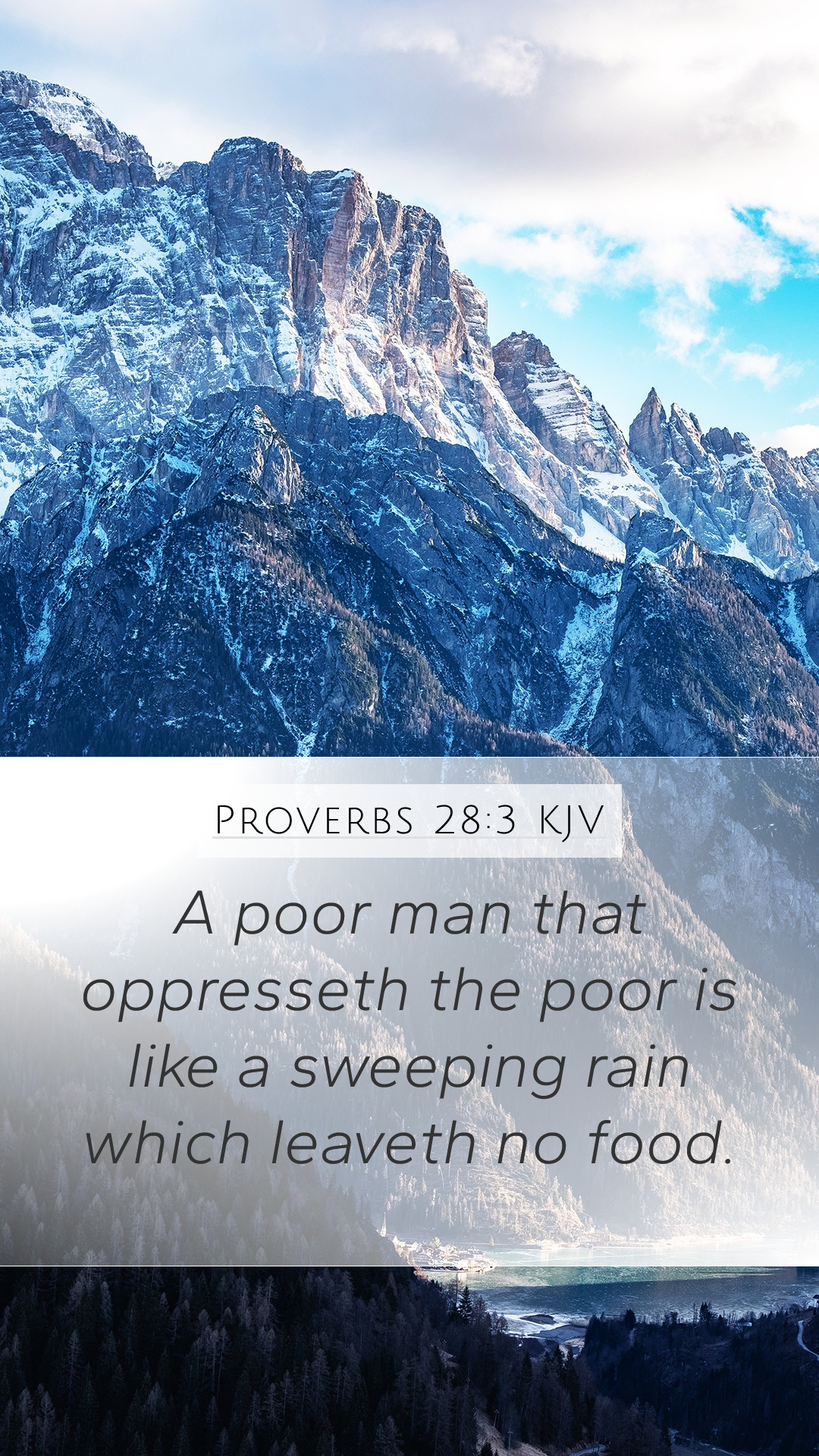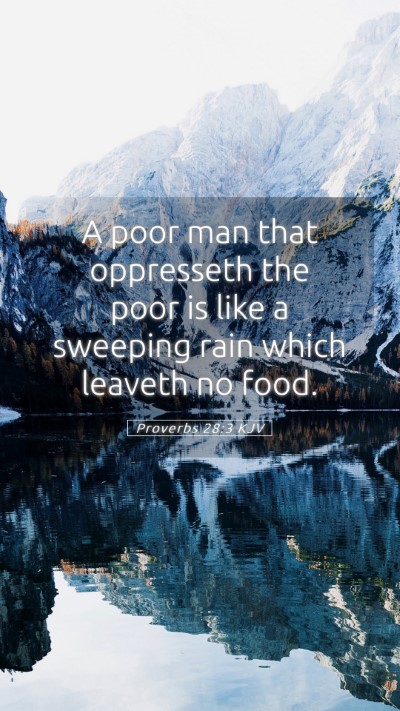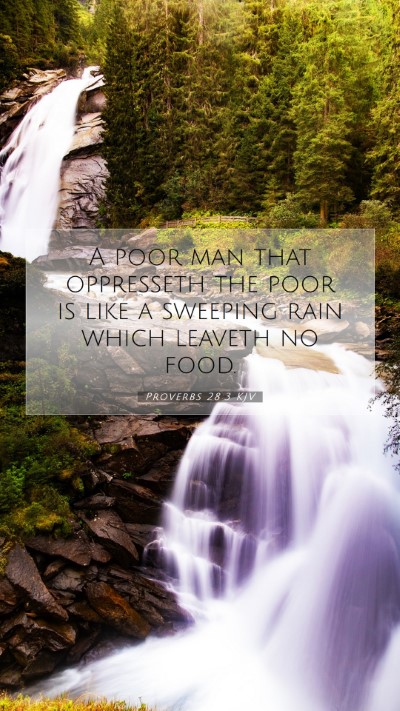Understanding Proverbs 28:3
Proverbs 28:3 states: "A poor man who oppresses the poor is like a sweeping rain that leaves no food." This verse encapsulates a profound moral lesson about social justice and the responsibilities that come with wealth and power.
Bible Verse Meanings
This proverb is a stark reminder that those in positions of power—regardless of their financial status—hold a moral obligation not to exploit the vulnerable. Employing insights from Matthew Henry's Commentary, we find that the proverb criticizes the actions of oppressors who take advantage of the destitute for personal gain.
Bible Verse Interpretations
From Albert Barnes' Notes, the phrase "sweeping rain" denotes a forceful, destructive force that leaves desolation in its wake. This illustrates how the oppression of the poor leads to societal ruin and despair. The oppressor, like a sudden storm, may provide momentary gain but ultimately brings destruction.
Bible Verse Understanding
Adam Clarke expands on the notion of economic injustice, highlighting that oppression shall not go unpunished. He draws upon historical context, explaining that it was particularly pertinent in a society where the wealthy often exploited the needy for their welfare.
Strong Moral Lesson
It is essential to recognize that the consequences of such oppression are mirrored in various contexts throughout scripture. This verse serves as a reminder of the values of integrity, compassion, and fairness in our treatment of others.
Key Insights from Commentaries
- Moral Responsibility: The wealthy must act justly towards those less fortunate.
- Destructive Nature of Oppression: Such actions lead to greater societal issues over time.
- Divine Justice: God enforces justice against those who exploit the needy.
Related Bible Cross References
- Proverbs 14:31: "He who oppresses the poor shows contempt for their Maker, but whoever is kind to the needy honors God."
- James 5:1-4: A warning to the rich about their exploitation of laborers.
- Zechariah 7:10: “Do not oppress the widow or the fatherless, the foreigner or the poor.”
Applying the Verse to Daily Life
The verse encourages readers to reflect upon their actions in daily interactions. It teaches that true wealth is demonstrated through generosity and kindness, rather than through the exploitation of others.
Bible Study Insights
This proverb can foster rich discussions in bible study groups or online bible study settings. Understanding the historical background can significantly enhance one’s comprehension of the text and its applications.
Conclusion
In summary, Proverbs 28:3 serves as an insightful commentary on the ethics of wealth, urging individuals to treat the marginalized with the dignity they deserve. Such studies on bible verse meanings and scripture analysis enrich our understanding of the moral teachings found in the Bible.


